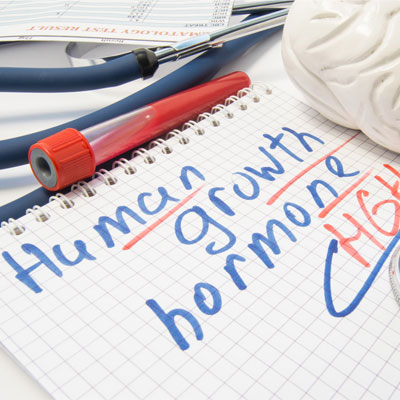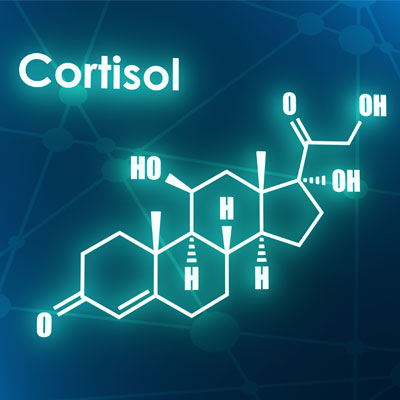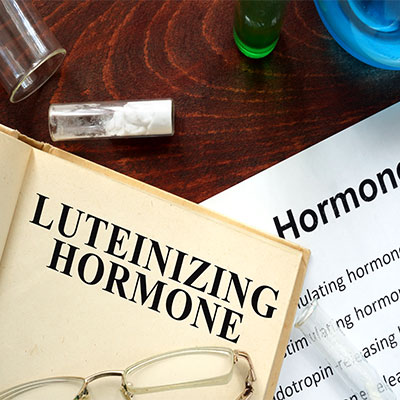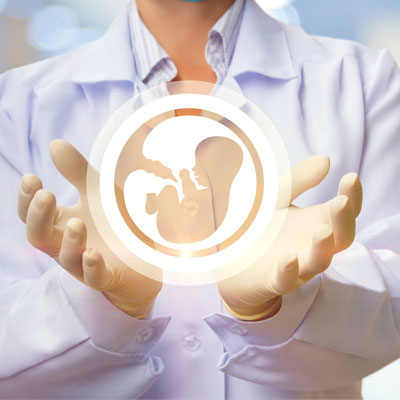Contents
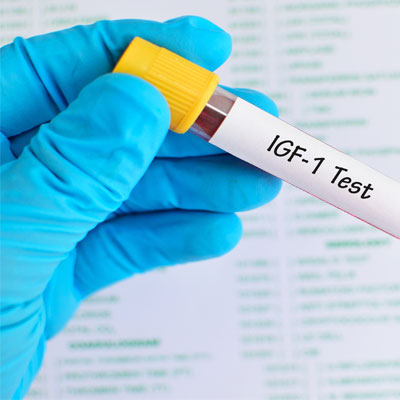
Insulin-Like Growth Factor-1 or IGF-1 is a hormone that plays a vital role in helping children grow into strong, healthy adults. It is remarkably similar to human growth hormone in that regard. Both HGH and IGF-1 are necessary for a child to meet growth milestones and achieve normal height.
HGH levels and your IGF-1 levels are intricately connected. HGH is produced by the pituitary gland. IGF-1 is produced by the liver, but it is the presence of HGH in the blood that tells the liver to make and release IGF-1.
Growth Hormone and Insulin-Like Growth Factor
Insulin-Like Growth Factor 1 and HGH are intimately related. They serve some similar functions in the body, but they are not the same thing. They are both hormones but different types of hormones. HGH is made by the pituitary gland, a gland of the endocrine system. IGF-1, like insulin, is made, by a body organ, in this case, the liver.
IGF-1 is made similar to the way insulin is made, and your body reacts to it the same way it does to insulin. This is why it is referred to as “insulin-like.” It is a “growth factor” because it, too, like HGH, stimulates cellular reproduction and the growth of tissue, particularly muscle and bone.
What Is the Difference Between HGH and IGF-1?
IGF-1 and HGH overlap in their functions, but they are not the same thing. Like HGH, IGF-1 is essential for the healthy growth of bones and muscles. Also, like HGH, it is linked to your ability to perform at your best in both physical and mental tasks.
Unfortunately, like HGH, your IGF-1 levels also decrease as you age. This drop in IGF-1 results in many of the same symptoms of lower than normal HGH levels, such as:
- Weakness
- Weight gain
- Loss of stamina
- Loss of sharpness and mental acuity
What Is the Function of IGF-1?
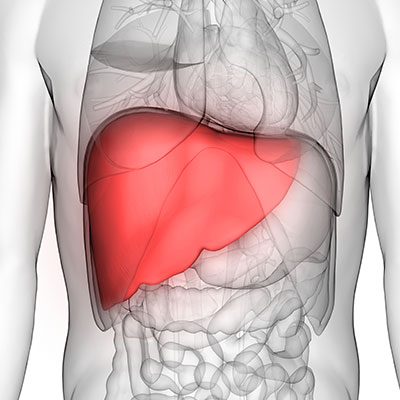
Once IGF-1 is released into your bloodstream by your liver, it stimulates cellular growth and regeneration, helping your body to recover and repair itself. Therefore, it is essential for keeping you strong and fit. It helps you to burn fat and build and maintain muscle throughout your life.
What Role Does IGF-1 Play in Growth Hormone Production?
HGH and IGF-1 are similar hormones that work in conjunction. HGH stimulates the liver to produce and release IGF-1. IGF-1 and HGH are what we call “synergistic.” That means that they rely on one another. Your production of IGF-1 depends on HGH, while the actions of IGF-1 enhance and promote the work of HGH, significantly increasing its ability to build muscle and stimulate cellular renewal.
IGF-1 and growth hormone work together, both playing a major role in the regulation of muscle mass and fat metabolism throughout the body.
Can You Take IGF and HGH Together?
IGF-1 and growth hormone are intricately linked. It is very unlikely that you would be IGF-1 deficient without also being growth hormone deficient. Because of this relationship, not only can you take IGF-1 and HGH together, they are quite often prescribed that way.
Growth hormone deficiency (GHD) is usually treated with growth hormone replacement therapy. However, depending on your symptoms and HGH levels, patients with GHD may be prescribed supplemental IGF-1 injections.
By its very nature, growth hormone therapy increases your level of IGF-1. It is HGH that stimulates the liver to produce and release IGF-1. Since IGF-1 stimulates cell growth throughout the body, it is largely the release of IGF-1 that is responsible for the muscle mass increases and bone-density increases seen in growth hormone replacement therapy.
IGF-1 acts on every cell in the body, including skin, encouraging cells to grow and regenerate. Therefore in many ways, it is increasing your level of IGF-1 that is the driving force behind most, if not all, of the benefits of growth hormone therapy.
What Do the Medical Studies Say About IGF-1 and HGH?
A 2001 study delving into the relationship between IGF-1 and growth hormone published in Trusted sourceInsulin-like Growth Factor 1 (IGF-1): a Growth HormoneNCBIGo to sourceThe Journal of Clinical Pathology
concluded that IGF and HGH act independently on growth but also have a “synergistic” effect on some tissues. “IGF-1 is an important growth hormone, mediating the protein anabolic and linear growth-promoting effect of pituitary HGH. It has a HGH independent growth-stimulating effect, which with respect to cartilage cells is possibly optimized by the synergistic action with HGH.”
A 2018 study whose goal was to investigate the effect of low-normal and high-normal levels of IGF-1 in growth hormone (GH), deficient adults, on cognition and wellbeing during GH treatment, concluded that, particularly in females, those in the low-dose IGF-1 group showed decreases in cognitive abilities, greater fatigue, and less vigor. The study was published in Trusted sourceEffect of IGF-1 levels on memory and wellbeing during Growth Hormone Replacement TherapyHealth and Quality of Life OutcomesGo to sourceHealth and Quality of Life Outcomes.
A 2019 article in the Trusted sourceHow IGF-1 and HGH Work Together to Support Optimal AgingNatural Medicine JournalGo to sourceNatural Medicine Journal said, “Insulin-like growth factor 1 (IGF-1) and human growth hormone (HGH) work together in the body to support optimal aging… administration of HGH induces a rise in circulating IGF-1 that stimulates glucose and amino acid uptake in muscle, which improves muscle protein synthesis. A combination of HGH and IGF-1 has beneficial potential because the decreased insulin sensitivity induced by HGH can be outbalanced by the addition of IGF-1. In general, HGH increases the binding protein for IGF, and concomitant administration may, therefore, increase the bioavailability of IGF-1 and its effects on the tissues.”
A 2019 study looking into the association between IGF-1 levels, HGH levels, and longevity concluded that increasing the levels of either of both hormones can lead to increased longevity. The study said that “[Animal and human] models have provided a great insight into the aging process with consistent data considering the role of the HGH/IGF-1/insulin system in the modulation of lifespan. While it is well known that enhanced insulin sensitivity and low insulin levels are associated with an improved survival, there are several evidences showing that attenuation of the HGH/IGF-1 axis may have beneficial effects in extending lifespan in humans.”
The study was published in the journal Trusted sourceROLE of IGF-1 System in the Modulation of LongevityFrontiers in EndocrinologyGo to sourceFrontiers in Endocrinology.
Conclusion
IGF-1 and growth hormone are intimately related. Both are necessary for growth in children and continued good health and vitality into adulthood and old age. People suffering from age-related growth hormone deficiency are likely IGF-1 deficient as well and may benefit from replacement injections of both critical hormones.
Now that you know a little bit more about the relationship between IGF-1 and HGH, why not contact us today, and find out if you are a candidate for either one or both of these life-changing therapies.
FAQ
1. What is IGF-1?
Insulin-Like Growth Factor 1 (IGF-1) is a naturally occurring protein that stimulates protein synthesis. It is sometimes also called somatomedin-C. Your growth hormone levels and your IGF-1 levels are closely related. It is the presence of human growth hormone (HGH) that stimulates the production of IGF-1 by the liver.
2. Does Low IGF-1 Cause Low HGH?
IGF-1 and HGH are intricately connected. It is very unlikely that you would have an IGF-1 deficiency without also having a growth hormone deficiency and vice versa. Since it is HGH that stimulates your liver to release IGF-1, it stands to reason that if you have lower than normal levels of HGH, you will also have lower than normal levels of IGF-1.
3. How Are IGF-1 Levels Tested?
The levels of HGH and IGF-1 in your bloodstream change throughout the day. These levels may also fluctuate due to other factors, such as your age, weight, and stress level. Your IGF-1 level is determined using a simple blood test. You should not eat or vigorously exercise just before having your IGF-level tested, as both can affect your IGF-1 level as well.
4. How Are Low IGF-1 Levels Treated?
If you are found to have low levels of IGF-1, depending on your age and your symptoms, you may be prescribed IGF-1 injections. Usually, IGF-1 injections are reserved for children who are not growing normally, but occasionally, adults will also be prescribed IGF-1 injections.
5. Is There Any Way to Boost IGF-1 Levels?
There are certain foods, like those that are high in zinc, that can raise your IGF-1 levels. Vitamins C and D have been known to raise IGF-1, as have taking probiotics. Exercise, particularly high-intensity interval training (HIIT), can raise both your IGF-1 and your HGH levels.
However, if your IGF-1 levels are significantly low, the only way to bring them back into the normal range is with IGF-1 therapy and/or growth hormone therapy.
- Z Laron, MD., PhD.
- Nicole M. Ashpole, Ph.D., Jessica E. Sanders, Erik L. Hodges, PhD., Han Yan, MD., PhD., William E. Sonntag, PhD.
- Amir S. Khan, Ph.D., David C. Sane, MD., Thomas Wannenburg, MD., William E. Sonntag, Ph.D.
- Christy S. Carter, MD., Melinda M. Ramsey, Rhonda L. Ingram, Adrienne B. Cashion, William T. Cefalu, MD., Z.Q. Wang, William E. Sonntag, PhD.
- Folke Hammarqvist, Prof., Ingmar Wennström, Jan Wernerman, Prof.
Insulin-like growth factor 1 (IGF-1): a growth hormone
Growth Hormone, Insulin-like Growth Factor-1 and the Aging Brain
Growth hormone, insulin-like growth factor-1 and the aging cardiovascular system
Models of Growth Hormone and IGF-1 Deficiency: Applications to Studies of Aging Processes and Life-Span Determination
Effects of Growth Hormone and Insulin-Like Growth Factor-1 on Postoperative Muscle and Substrate Metabolism



